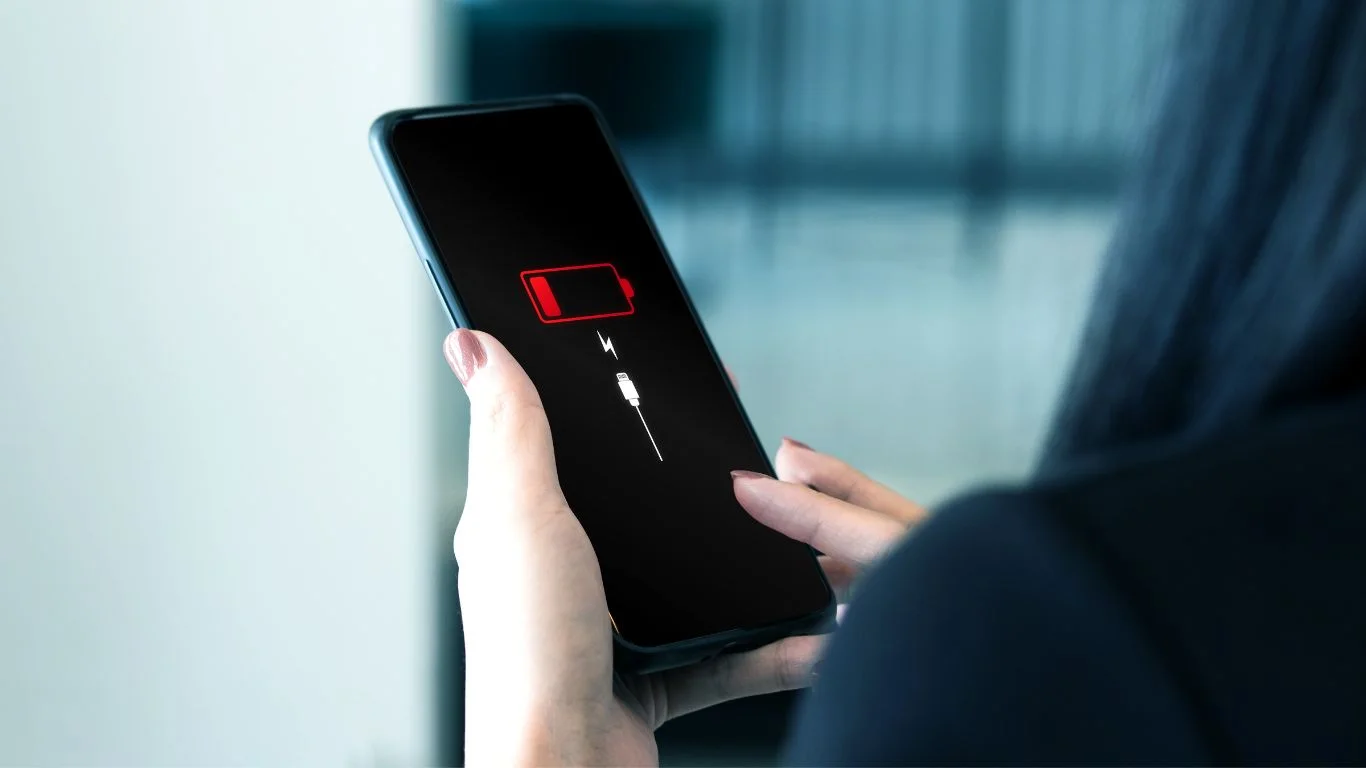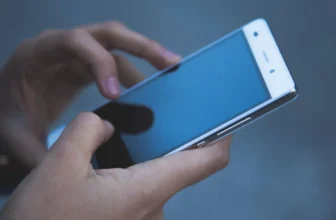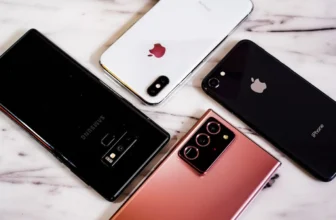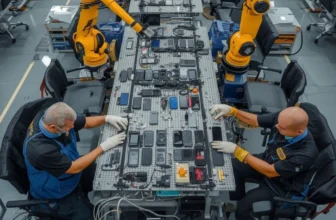
A swollen battery is one of the most concerning issues a device owner can encounter. Whether it’s in a smartphone, laptop, or any other portable device, a swollen battery is a serious problem that should never be ignored. Not only can it render your device unusable, but it also poses safety risks such as leaking toxic chemicals, catching fire, or even exploding. In this article, we will guide you on how to safely handle a swollen battery, from identifying the problem to taking the right steps to mitigate any dangers.
1. Recognizing a Swollen Battery
Why It’s Important:
Identifying a swollen battery is the first crucial step in preventing further damage. A battery that is swollen is typically a result of internal chemical reactions that cause the gases inside to build up, leading to expansion. In some cases, the battery might appear visibly bloated or distorted.
Signs of a Swollen Battery:
- The device’s back cover or screen may appear bulging or lifted.
- You may notice unusual warmth or heat when using or charging the device.
- The device may feel unusually heavy or uneven.
- A decrease in battery performance or rapid discharges can also indicate a swollen battery.
If you observe any of these signs, it’s crucial to act quickly, as a swollen battery can leak or rupture.
2. Power Off the Device Immediately
Why It’s Important:
If you notice a swollen battery, the first step is to power off the device immediately. A swollen battery can lead to short circuits or further degradation of the device’s internal components if left running.
What You Should Do:
- Turn off your device as soon as possible to prevent further risk to the battery or internal electronics.
- If the device won’t turn off due to battery malfunction, try holding the power button for a longer time or using the hard reset method (usually involves holding power and volume buttons simultaneously).
3. Avoid Charging the Device
Why It’s Important:
Charging a device with a swollen battery can cause even more heat to build up, increasing the risk of an explosion or fire. The internal pressure in a swollen battery can be dangerously unstable, and charging can worsen the situation.
What You Should Do:
- Do not plug the device into a charger.
- Allow the device to cool down naturally and ensure that it remains powered off.
4. Keep the Device Away from Heat or Flammable Materials
Why It’s Important:
A swollen battery can release hazardous chemicals or even catch fire if exposed to heat or other combustible materials. Heat can further damage the battery’s internal structure, making the situation worse.
What You Should Do:
- Store the device in a cool, dry place away from any direct heat sources, including sunlight, heaters, or fire hazards.
- Avoid placing the device near other devices or materials that could catch fire if the battery leaks or ignites.
5. Do Not Puncture, Squeeze, or Apply Pressure
Why It’s Important:
Swollen batteries are fragile and can rupture or leak toxic chemicals when punctured or squeezed. If you try to apply pressure, you risk damaging the battery further, which can cause it to explode or release harmful substances.
What You Should Do:
- Do not attempt to squeeze, press, or puncture the battery under any circumstances.
- Keep the device away from any sharp objects or tools that could accidentally cause the battery to break open.
6. Remove the Battery If Possible (For Removable Batteries)
Why It’s Important:
If your device has a removable battery, removing it immediately can reduce the risk of further damage and mitigate any immediate safety concerns. However, many modern devices have non-removable batteries, and attempting to remove these batteries yourself can cause more harm than good.
What You Should Do:
- If you can safely remove the battery, wear gloves and carefully detach it from the device.
- If you cannot remove the battery, it is best to leave the device powered off and seek professional help.
More About: How to Properly Charge Your Phone Battery
7. Safely Dispose of the Swollen Battery
Why It’s Important:
A swollen battery should never be thrown away in regular trash as it poses environmental and safety risks. It can be harmful to both humans and wildlife if not disposed of properly.
What You Should Do:
- Take the swollen battery to a certified recycling facility or a battery disposal center.
- Many electronics retailers, local councils, and recycling programs offer services for safely disposing of old or damaged batteries.
- Never throw a swollen battery into a fire, as it can explode.
Read More: What to Do If Your Touchscreen Stops Working
8. Seek Professional Repair or Replacement
Why It’s Important:
Handling a swollen battery requires expertise, especially when it comes to the safe removal and replacement of the battery. If you don’t feel confident in dealing with the issue yourself, it’s best to consult a professional.
What You Should Do:
- Contact the device manufacturer or a professional technician if you are unsure how to handle the situation.
- Many manufacturers offer battery replacements or repairs for defective batteries.
- If your device is under warranty, it’s best to reach out to the company for a safe replacement or repair process.
Checkout: How to Secure Your Smartphone from Hackers
9. Prevent Future Battery Issues
Why It’s Important:
After dealing with a swollen battery, it’s essential to take steps to prevent similar issues from occurring in the future. Proper battery care and usage can help extend its life and avoid costly repairs.
What You Should Do:
- Avoid exposing your device to extreme temperatures.
- Use the correct charger for your device to prevent overcharging.
- Monitor battery health through the device settings and replace the battery if necessary.
More Info: Mobile Games You Won’t Believe Are Free
Conclusion
A swollen battery is a serious issue that requires immediate attention. If you encounter a swollen battery, remember to power off the device, avoid charging it, and keep it away from heat or pressure. If the battery is removable, take it out carefully and dispose of it properly. Always seek professional assistance if you’re unsure about how to handle the situation. By following these steps, you can ensure your safety and prevent further damage to your device.
FAQs on How to Handle a Swollen Battery
Swelling occurs when a battery’s internal chemicals break down, causing gas to build up. This is often due to overheating, overcharging, or aging.
Yes, a swollen battery is dangerous. It can leak harmful chemicals, overheat, or even catch fire or explode if mishandled.
Power off the device immediately, avoid charging it, and store it in a cool, dry place. Contact a professional for battery removal or replacement.
No, you should not use a device with a swollen battery as it can cause further damage, pose health risks, or lead to an explosion.
A swollen battery should be disposed of at a certified recycling center or battery disposal facility to avoid safety hazards.





